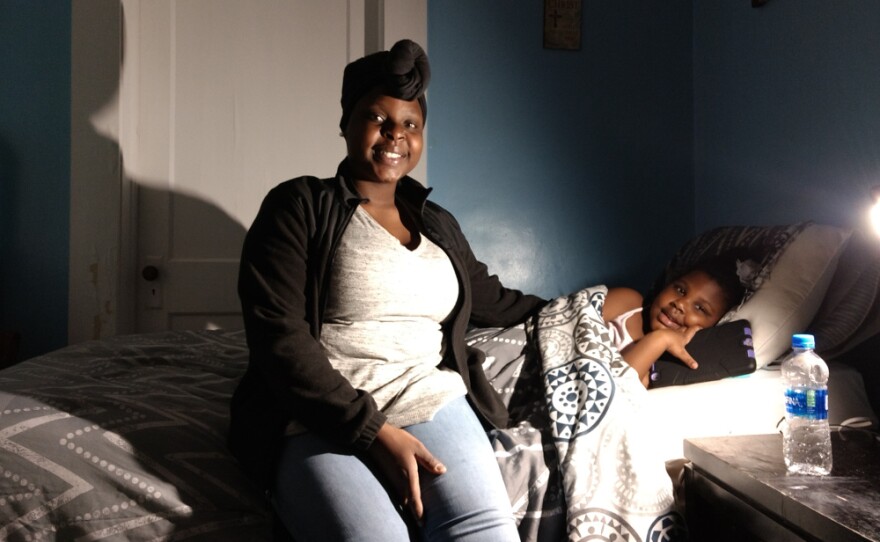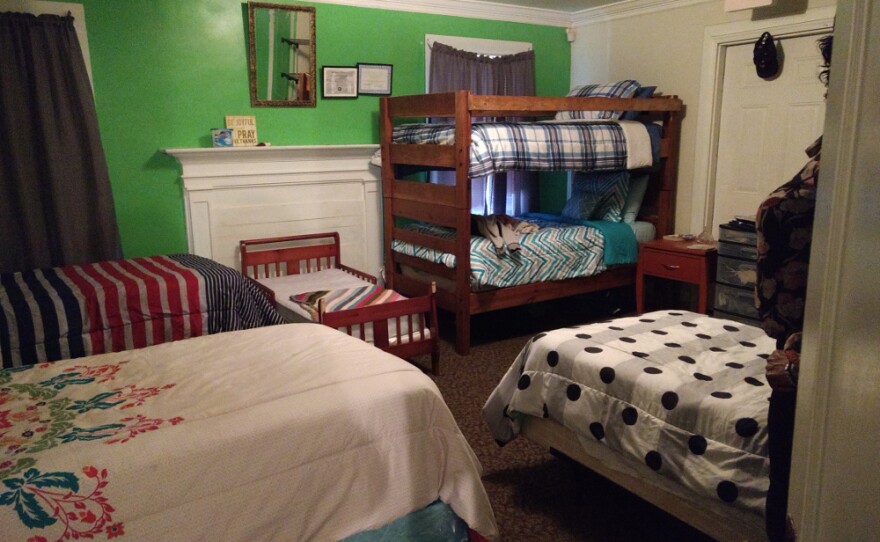Affordable housing is a top priority for Charlotte city leaders. It takes many forms - from workforce housing for moderate-income residents, to subsidized housing for those with very low incomes. There's also transitional housing, aimed at helping people move from homelessness to permanent housing.
Gracious Hands is one of a handful of low-cost temporary housing programs in the city.
Founder Sonja Chisholm said it's about more than housing. She makes her residents save half of their incomes to someday get housing on their own.
“When they come in, they’re low income," Chisholm said. "My job is not to keep them low income. I want them to get educated so they can make the money that they need to survive for them and their children."
Since opening in a small brick house in northwest Charlotte three years ago, Chisholm has housed 91 women and their children. She said half of her former residents have successfully moved into their own homes.
This is the story of one current resident and her big plans.
MEET LYN ALEXIS
Lyn Alexis is a 25-year-old single mother from Pennsylvania, where she had been training to be a nurse before her life fell apart.
“I wasn't finding my place in life and I didn't find my purpose in life,” Alexis said. “So in March 2017, I tried to commit suicide, which was almost successful. Once it didn't work, I realized my purpose was to be a better person for my daughter and to help people with the story that I have.”
She said she needed to leave what she called a toxic family situation.
“So then I got in my car one night," she said. "I packed my vehicle, whatever could fit in my vehicle, and my child and we drove to Oklahoma."
Oklahoma didn't work out, and neither did a stay with a relative in Florida. Alexis packed up again and six months ago landed in Charlotte, pretty much by chance.
She knew nobody and was living off her savings in rented rooms. Eventually, she and daughter Iori were living out of her car. Last October, a social worker referred her to Gracious Hands - and to director Sonja Chisholm.
Alexis said it was rocky at first, partly because she kept her defenses up. She said she wasn't used to getting help from others.
“So that didn't work out very well,” Alexis said. “And eventually, you know, she had a real serious sit down with me and then ever since then I opened up to her. It's been amazing ever since then, like amazing.”
Doors began to open. Chisholm pushed Alexis to start dealing with old credit problems and to finish the nursing assistant training she started. Eventually, Alexis found a job at an adult day care. Now, she gets a good paycheck working full time as a health care technician at Levine Children's Hospital.
It's exactly the kind of progress Chisholm demands from her residents, whom she screens before they move in.
“I make sure that they have the mindset of really being geared to want to get off welfare, want to work, are willing to save their money, willing to do the credit repair, willing to do their case management and learn basic life skills, if they do not have those,” Chisholm explained, saying, “once I know that they are ready to do those things, I accept them into the program and we start working instantaneously.”
Gracious Hands has space for five women and their children at a time. Chisholm says she turns away five to 10 families a day. If they aren't already working, most of the women find jobs within a couple of weeks. Chisholm pushes them hard - acting as both counselor and mother figure.
“She's like my mom, like the mom that no kid wants, that'll tell you this is what you need to do," Alexis said. "You might want to do that, but this is what you need to do. This is what you know is best for you. And she's always, I mean always, looking out for me - even when sometimes I don't want her to.”
According to Chisholm, Gracious Hands is more than just a place to live.
“I just truly, truly believe if we really put our all into accountability and responsibility on the people that are in these situations, we'll have a better outcome,” Chisholm said.
Like other transitional housing programs, Gracious Hands limits how long women and children can stay. The limit is one year, as long as the women are working to improve themselves. So far, nobody has stayed longer than 10 months.
Not everyone makes it, Chisholm said.
“You know you can't help anyone that does not want it themselves. If I'm more invested in them than they are invested in themselves, that's a problem altogether,” Chisholm said. "I really go hard for the ones that come here and go hard for themselves.”
Women like Lyn Alexis. She's getting her life back on track and learning to budget. Her salary is enough to pay Chisholm $200 a month for housing, cover other living expenses and pay for her daughter's pre-school.
And there's enough left over to save for a dream.
“My goal is to buy a house within the year, the next year," Alexis said. "You know I have a good paying job. I'm not paying much to live here because she provides everything that I need."
With all the life training she's getting, Alexis will be ready to go on her own - Chisholm's grand plan for all her residents.
“I don't want them to come in and stay where they are," Chisholm said. "When they leave, I want them to be a big ol' flower that's flourishing out there."
Gracious Hands just celebrated its third birthday in February. Chisholm pays the $80,000 a year operating costs with a collection of small grants and her own savings. She dreams of one day running 10 houses like this one. First, she needs to figure out how to win larger grants to keep it all going. You can be sure that like her residents, she's working on it every day.
As for Lyn Alexis, we're going to check in with her periodically and update you on her progress out of transitional housing.
RELATED LINK
You can view the Gracious Hands website here.










